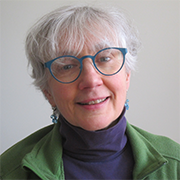A .gov website belongs to an official government organization in the United States.
A lock () or https:// means you've safely connected to the .gov website. Share sensitive information only on official, secure websites.

Fire plays a pivotal role in shaping terrestrial ecosystems and the chemical composition of the atmosphere, and thus influences Earth's climate. In addition, the smoke from fires, like other airborne particles, has a deleterious effect on human health. This talk focuses on our recent efforts to improve understanding of the impacts of fire on climate and air quality. To begin with, the talk presents new evidence from 14 Antarctic ice cores and one central Andean ice core that, taken together, suggest that historical fire activity in the Southern Hemisphere (SH) significantly exceeded present-day levels. Using a combination of models, we show that overall SH fire emissions likely declined by 30% over the 20th century, possibly because of the rapid expansion of land use for agriculture and animal husbandry in middle-to-high latitudes. Radiative forcing calculations imply that the decreasing trend in SH fire emissions over the last century largely compensates for the cooling effect of increasing aerosols from fossil fuel and biofuel sources. These results suggest that current models may overestimate the cooling effect from anthropogenic aerosols since 1750, at least in the SH. With regard to air quality, the talk describes our efforts to pin down the health impacts of smoke particles across the western United States, as well as our projections of fire activity and smoke exposure under climate change in this region.
Dr. Loretta Mickley is a Senior Research Fellow at Harvard University's School of Engineering and Applied Sciences, and co-leads its Atmospheric Chemistry Modeling Group. Dr. Mickley received a MSc in Chemistry from the University of Illinois at Chicago with research on ab initio calculations to determine the molecular structure and vibrational force fields of biopolymers, and a PhD in Geophysical Sciences from the University of Chicago, with a thesis on the analysis of HALOE satellite measurements of stratospheric ozone and other trace gases. After a postdoctoral fellowship in climate and global change with NOAA, she joined Harvard University as a Research Associate in 1999, and was appointed Senior Research Fellow in 2011. Dr. Mickley seeks to understand how short-lived gases and particles affect climate and how climate, in turn, influences atmospheric composition. Key subjects of Dr. Mickley's work include the effects of climate change on smog episodes and wildfires, the influence of wildfires and agricultural fires on air quality, the impacts of aerosol trends on regional climate, the response of PM2.5 and ozone to meteorological variability and climate change, and the health impacts of air pollution.
ALL Seminar attendees agree not to cite, quote, copy, or distribute material presented without the explicit written consent of the seminar presenter. Any opinions expressed in this seminar are those of the speaker alone and do not necessarily reflect the opinions of NOAA or CSL.